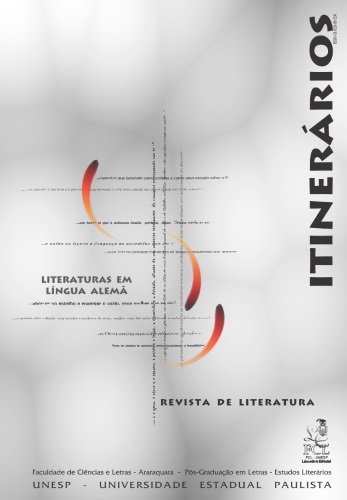Relações dialógicas possíveis entre cinema e literatura: uma leitura da ideologia romântica de O Guarani
DOI:
https://doi.org/10.58943/irl.v0i39.7593Palavras-chave:
Dialogismo, Polifonia, Intertextualidade, Romance, Filme,Resumo
Neste trabalho, vinculado ao projeto de pesquisa “O romance e suas intersecções – versões e transposições da ficção literária”, averiguamos em que medida a identidade nacional forjada pelo romantismo de José de Alencar pôde ser retomada (ou ampliada) no filme O Guarani (1996), de Norma Bengell. Para tanto, apresentamos, primeiramente, breve discussão teórica acerca de dialogismo, polifonia e intertextualidade. Embasados nas leituras de Bakhtin e Volochinov (1992), Bakhtin (1992, 1997, 1998), Kristeva (1974), Stam (2003), Genette (1982), entre outros, fazemos um esboço da ampliação do conceito de dialogismo para em seguida averiguar os aspectos dialógicos, intertextuais e/ou polifônicos concernentes ao enunciado cinematográfico traduzido da literatura para o cinema, especialmente do romance ao filme. Nesse sentido, as ideologias pertencentes tanto a um enunciado de partida quanto a um enunciado de chegada estão relacionadas ao seu auditório social e ao seu cronotopo; a intertextualidade e a polifonia estão inseridas no conjunto das relações dialógicas, sendo o enunciado um objeto discursivo, social e histórico, que concilia abordagens externas da linguagem. Esperamos que o resultado desta pesquisa possa contribuir para desvendar possíveis relações dialógicas na análise comparativa entre romance e filme.
Downloads
Edição
Seção
Licença
Os manuscritos aceitos e publicados são de propriedade da revista Itinerários. É vedada a submissão integral ou parcial do manuscrito a qualquer outro periódico. A responsabilidade do conteúdo dos artigos é exclusiva dos autores. É vedada a tradução para outro idioma sem a autorização escrita do Editor ouvida a Comissão Editorial.

